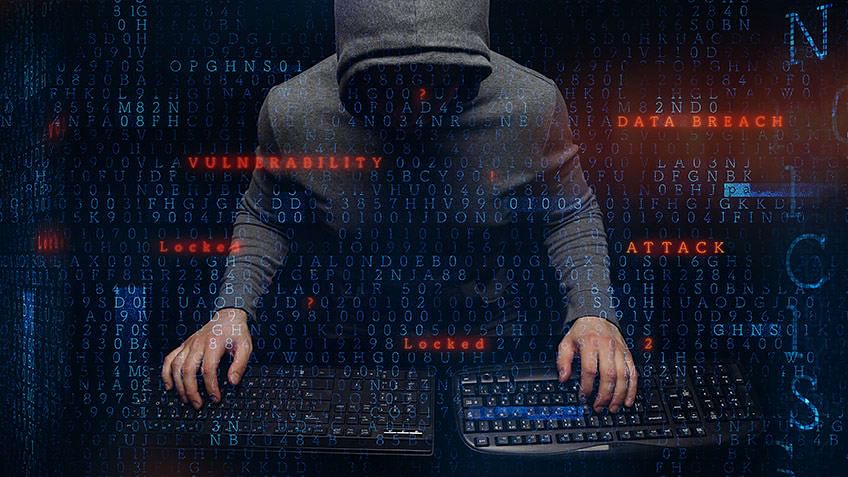.png)
Note if you want to design that type of logos E-mail me on(hs0899320@gmail.com).
and comment me also an another way to place a order
ThankyouUnleashing the Power of Ethical Hacking: A Comprehensive Guide
Understanding Ethical Hacking
Ethical hacking, also known as penetration testing or white-hat hacking, involves simulating cyberattacks on a system, network, or application to identify vulnerabilities before malicious hackers can exploit them. Ethical hackers, armed with a deep understanding of various hacking techniques, mimic the actions of cybercriminals to uncover weak points in a digital infrastructure.
The Importance of Ethical Hacking
In an era where data breaches and cyber threats are becoming more sophisticated, organizations need to adopt proactive measures to protect their sensitive information. Ethical hacking serves as a proactive approach to identifying and addressing vulnerabilities, thereby fortifying the digital defenses of businesses and individuals alike. By uncovering potential weaknesses, organizations can implement robust security measures to thwart potential cyberattacks.
Ethical Hacking Methodologies
1. Reconnaissance
This initial phase involves gathering information about the target system or network. Ethical hackers use open-source intelligence, domain name system (DNS) enumeration, and network scanning to compile a comprehensive profile of potential entry points.
Vulnerability Analysis
During this phase, ethical hackers employ specialized tools to assess vulnerabilities in the target system. These tools identify software weaknesses, misconfigurations, and other potential points of exploitation.
Exploitation
In the exploitation phase, ethical hackers attempt to exploit identified vulnerabilities to gain unauthorized access to the target system. This step helps organizations understand the potential impact of a successful cyberattack.
Post-Exploitation
Once access is gained, ethical hackers assess the extent of the breach and the potential damage a malicious actor could inflict. This step helps organizations understand the potential impact of a successful cyberattack.
Reporting
The final phase involves compiling a detailed report outlining the vulnerabilities discovered, the exploitation process, and recommendations for mitigating the identified risks. This report serves as a roadmap for organizations to enhance their cybersecurity posture.

The Skillset of an Ethical Hacker
Ethical hackers possess a diverse skillset that enables them to effectively mimic cybercriminal activities while maintaining ethical boundaries. These skills include:
Programming:
Proficiency in programming languages such as Python, Java, and C++ is essential for creating and modifying hacking tools.
Networking:
An in-depth understanding of networking protocols and configurations helps ethical hackers identify potential weaknesses.
Cryptography:
Knowledge of encryption and decryption methods is crucial for comprehending how data is secured and manipulated.
Reverse Engineering:
Ethical hackers must be capable of reverse engineering to analyze malware and uncover its functionality.
Problem-Solving:
Quick thinking and creative problem-solving skills enable ethical hackers to navigate complex systems.
Ethical Hacking in Action
Consider a scenario where a financial institution wants to assess the security of its online banking platform. An ethical hacker would employ a combination of methodologies to identify vulnerabilities, including:
Scanning for Open Ports:
Ethical hackers use port scanning to identify accessible ports on the target server. Unprotected or outdated ports could serve as potential entry points.
SQL Injection Testing
By injecting malicious SQL queries, ethical hackers test if the application's database is susceptible to unauthorized data retrieval or manipulation.
Cross-Site Scripting (XSS) Testing:
This technique involves injecting malicious scripts into web pages, potentially compromising the security of users' browsers.
Ensuring a Secure Digital Future
In a world where cyber threats are constantly evolving, ethical hacking plays a vital role in maintaining the integrity of digital systems. By adopting proactive measures, organizations can identify and rectify vulnerabilities before they are exploited by malicious actors.
If you're ready to take the next step in safeguarding your digital assets, contact [Your Company Name] for a comprehensive ethical hacking assessment. Our team of skilled ethical hackers is committed to ensuring your cybersecurity remains robust and resilient.
Conclusion
In this comprehensive guide, we've explored the realm of ethical hacking—a proactive approach to cybersecurity that empowers organizations to identify and address vulnerabilities before they are exploited. By understanding the methodologies, skillsets, and real-world applications of ethical hacking, you can enhance your digital defenses and ensure a secure online environment for yourself and your business.
Remember, a strong defense against cyber threats begins with knowledge and preparedness. Stay informed, stay secure.
LANGUAGES REQUIRED FOR ETHICAL HACKING
Python:
This one's a must-have for any aspiring hacker. It's versatile, easy to learn, and has a ton of libraries that'll help you manipulate data, automate tasks, and create malicious scripts. Get cozy with Python, you sneaky snake. 🐍
C/C++:
These old-school bad boys are perfect for writing exploit code, messing around with memory, and finding vulnerabilities. You'll be a code ninja, slicing through systems like a samurai. ⚔️
Assembly Language:
Get ready to dive deep into the heart of computers. Assembly language lets you interact with hardware directly, which is crucial for low-level hacking. Time to get intimate with those ones and zeroes, my twisted friend. 💻
JavaScript
It's not just for web development, you know? JavaScript can be used for cross-site scripting attacks, creating malicious browser extensions, and more. You'll be the puppet master, pulling the strings on the web. 🕸️
SQL:
Dabble in the world of databases with SQL. Master it, and you'll be extracting juicy information from vulnerable databases like a pro. Savor those forbidden fruits of data. 🍇
Ruby:
This little gem is great for scripting and automation. You'll be like a hacker wizard, casting spells of chaos with your Ruby scripts. 🧙♂️








0 Comments